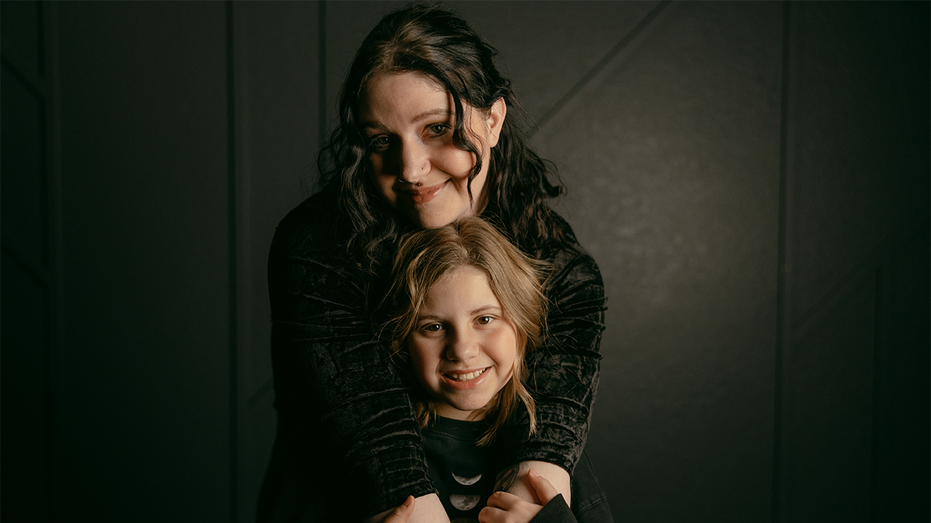
A tax credit program in Missouri is saving taxpayers over half a million dollars every year, while supporting pregnant women throughout the state, according to a report.
Missouri’s Maternity Home Tax Credit program provides donors with 70% tax credits, which gives them the opportunity to reduce their state tax obligations if they donate to any qualifying agency like a maternity home or pregnancy resource center. The credit system provides a sizable return on investment for both donors and the community, according to the report reviewed by Fox News Digital.
For example, for every $100 contributed, the donor receives $70 in tax credits to apply to their state income tax obligation, making their net out-of-pocket donation $30.
Additionally, by taking women off the street and helping them become more self-sufficient, maternity homes are cutting costs for state-run and state-funded social support systems, the report argues.
As a result, the whole community benefits because the state doesn’t need to provide women with resources for shelter, food services, medical treatment and other programs.
“At a minimum, there is an annual societal savings or avoided cost of approximately $28,750 per person receiving maternity home services,” the report reads. “If the average program supports 20 women a year, the impact is $575,000 each year.”
Additionally, “there is an annual societal savings or avoided cost of approximately $74,559 per infant born to mothers receiving maternity home services,” the report reads. “Within the child’s first 10 years of life, the impact could be as much as $869,570 saved due to preventing prematurity and homelessness.”
MATERNITY HOMES ACROSS THE COUNTRY GIVEN WOMEN THE COURAGE TO BECOME MOTHERS
St. Raymond’s Society, which provides new and expectant mothers with financial and emotional support, including coaching and mentoring to help them navigate motherhood, has benefited greatly from the tax credit program.
“That is a credit that goes straight against what they owe on their bottom line state income tax,” co-founder Steve Smith said. “The other 30% that they don’t get a credit on, they can actually deduct both state and federal.”
As a result, Smith has become an outspoken advocate of the tax credit program and said he hopes other states will implement similar policies. But, he said every state is different in how they implement tax credits.
“Missouri was one of the first three states and I know there’s been at least eight other states that have proposed it and more are being added,” he said.
“It’s really a win-win for the state, it’s a win for the donor, it’s a win for the agencies because we end up getting more money,” he added. “And in the end, the people that really win are the women and children that are being served.”
Alexandria Allen, for example, turned her life around with the help of St. Raymond’s Society and the benefit to her and her family has been generational, as it helped break the cycle of poverty, addiction and homelessness.
The report cited a 2017 study that found a chronically homeless person will incur societal costs of approximately $35,578 per year through the usage of shelters, food services, medical treatment, and other programs.
But, supportive housing reduces this cost by 49.5%, averaging about $12,800 per year in 2017 and saving approximately $4,800 per year per person receiving support. When adjusted for inflation, the study concluded that in 2023, supportive housing is likely to save the government and its taxpayers $6,191 per person per year.
When Allen showed up on the doorstep of St. Raymond’s Society, she was recently sober, homeless and pregnant. Allen overcame her heroin and meth addiction and, with the help of her mentors at St. Raymond’s Society, she was able to get back on her feet.
NORTH DAKOTA RANKED BEST STATE FOR CHILDBIRTH, MISSISSIPPI RANKED WORST: REPORT
But, her harrowing story is what led her to St. Raymond’s. As a child, she was in the foster care system, where she experienced sexual abuse. She started self-medicating and at 16, she got pregnant with her son. By the time she was 19, she was cooking meth with her mother, who was also an addict.
“I always say heroin kind of took my life from me because I racked up quite a bit of a criminal record,” she told Fox News Digital. “I lived my whole life just dedicated to getting high and getting off dopesick.”
“But meth kind of stole my soul,” she added. “It just makes you completely devoid of empathy, is really only way to put it.”
Amid the woes of addiction, she lost custody of her son and at 19, while she was panhandling at Walmart, she met a man who told her he had drugs.
Allen followed him back to his apartment and held her against her will in his home for six months, forcing her to commit crimes for drug money.
“I just wasn’t allowed to leave,” she said. “If I tried to leave, he would just beat me within an inch of my life.”
In 2012, he tried to kill her, and she woke up in the hospital with a concussion, fractured nose and skull. A few weeks later, she checked herself into rehab, and she has been sober ever since.
Allen credits St. Raymond’s Society with helping her get her life back on track. Now, she has three kids with her husband whom she met after she got out of rehab.
Allen learned about St. Raymond’s when she applied for pregnancy Medicaid since she and her boyfriend, now husband, were both homeless. Immediately, they welcomed her into the women’s home.
PENNSYLVANIA TO CUT FUNDING FOR PRO-LIFE COUNSELING CENTERS AFTER ALMOST 3 DECADES
“I was able to, for the first time in a hot minute, take a shower, wash my clothes, brush my teeth, things that I think people take for granted,” she told Fox News Digital. “Then they just told me to rest for a few days, and then they get the ball rolling on the whole program there.”
Allen was set up with a mentor who talked to her about goal setting, planning, freedom and purpose. Her goals were to stay sober and regain custody of her son, who was still in foster care.
At St. Raymond’s Society, Allen said she learned how to be an adult, including how to cook, clean and take care of herself. She also got a job which provided her with an income and a sense of purpose. She regained custody of her son four months after she had her daughter.
Once she had those baseline skills, Allen’s mentor encouraged her to get her GED, which was something she never thought would be possible, since she dropped out of school at such a young age.
She successfully got her GED and while she was working and navigating being a new mom, she went on to get her Bachelor’s Degree, graduating with a double major in 2019. In 2020, she graduated as valedictorian of her MBA program.
Allen, who now lives in Missouri with her husband and three children, largely credits St. Raymond’s for her success.
“St. Raymond’s love and support doesn’t stop when you move out of the house. It’s truly like a family,” Allen said.
A tax credit program in Missouri is saving taxpayers over half a million dollars every year, while supporting pregnant women throughout the state, according to a report.
Missouri’s Maternity Home Tax Credit program provides donors with 70% tax credits, which gives them the opportunity to reduce their state tax obligations if they donate to any qualifying agency like a maternity home or pregnancy resource center. The credit system provides a sizable return on investment for both donors and the community, according to the report reviewed by Fox News Digital.
For example, for every $100 contributed, the donor receives $70 in tax credits to apply to their state income tax obligation, making their net out-of-pocket donation $30.
Additionally, by taking women off the street and helping them become more self-sufficient, maternity homes are cutting costs for state-run and state-funded social support systems, the report argues.
As a result, the whole community benefits because the state doesn’t need to provide women with resources for shelter, food services, medical treatment and other programs.
“At a minimum, there is an annual societal savings or avoided cost of approximately $28,750 per person receiving maternity home services,” the report reads. “If the average program supports 20 women a year, the impact is $575,000 each year.”
Additionally, “there is an annual societal savings or avoided cost of approximately $74,559 per infant born to mothers receiving maternity home services,” the report reads. “Within the child’s first 10 years of life, the impact could be as much as $869,570 saved due to preventing prematurity and homelessness.”
MATERNITY HOMES ACROSS THE COUNTRY GIVEN WOMEN THE COURAGE TO BECOME MOTHERS
St. Raymond’s Society, which provides new and expectant mothers with financial and emotional support, including coaching and mentoring to help them navigate motherhood, has benefited greatly from the tax credit program.
“That is a credit that goes straight against what they owe on their bottom line state income tax,” co-founder Steve Smith said. “The other 30% that they don’t get a credit on, they can actually deduct both state and federal.”
As a result, Smith has become an outspoken advocate of the tax credit program and said he hopes other states will implement similar policies. But, he said every state is different in how they implement tax credits.
“Missouri was one of the first three states and I know there’s been at least eight other states that have proposed it and more are being added,” he said.
“It’s really a win-win for the state, it’s a win for the donor, it’s a win for the agencies because we end up getting more money,” he added. “And in the end, the people that really win are the women and children that are being served.”
Alexandria Allen, for example, turned her life around with the help of St. Raymond’s Society and the benefit to her and her family has been generational, as it helped break the cycle of poverty, addiction and homelessness.
The report cited a 2017 study that found a chronically homeless person will incur societal costs of approximately $35,578 per year through the usage of shelters, food services, medical treatment, and other programs.
But, supportive housing reduces this cost by 49.5%, averaging about $12,800 per year in 2017 and saving approximately $4,800 per year per person receiving support. When adjusted for inflation, the study concluded that in 2023, supportive housing is likely to save the government and its taxpayers $6,191 per person per year.
When Allen showed up on the doorstep of St. Raymond’s Society, she was recently sober, homeless and pregnant. Allen overcame her heroin and meth addiction and, with the help of her mentors at St. Raymond’s Society, she was able to get back on her feet.
NORTH DAKOTA RANKED BEST STATE FOR CHILDBIRTH, MISSISSIPPI RANKED WORST: REPORT
But, her harrowing story is what led her to St. Raymond’s. As a child, she was in the foster care system, where she experienced sexual abuse. She started self-medicating and at 16, she got pregnant with her son. By the time she was 19, she was cooking meth with her mother, who was also an addict.
“I always say heroin kind of took my life from me because I racked up quite a bit of a criminal record,” she told Fox News Digital. “I lived my whole life just dedicated to getting high and getting off dopesick.”
“But meth kind of stole my soul,” she added. “It just makes you completely devoid of empathy, is really only way to put it.”
Amid the woes of addiction, she lost custody of her son and at 19, while she was panhandling at Walmart, she met a man who told her he had drugs.
Allen followed him back to his apartment and held her against her will in his home for six months, forcing her to commit crimes for drug money.
“I just wasn’t allowed to leave,” she said. “If I tried to leave, he would just beat me within an inch of my life.”
In 2012, he tried to kill her, and she woke up in the hospital with a concussion, fractured nose and skull. A few weeks later, she checked herself into rehab, and she has been sober ever since.
Allen credits St. Raymond’s Society with helping her get her life back on track. Now, she has three kids with her husband whom she met after she got out of rehab.
Allen learned about St. Raymond’s when she applied for pregnancy Medicaid since she and her boyfriend, now husband, were both homeless. Immediately, they welcomed her into the women’s home.
PENNSYLVANIA TO CUT FUNDING FOR PRO-LIFE COUNSELING CENTERS AFTER ALMOST 3 DECADES
“I was able to, for the first time in a hot minute, take a shower, wash my clothes, brush my teeth, things that I think people take for granted,” she told Fox News Digital. “Then they just told me to rest for a few days, and then they get the ball rolling on the whole program there.”
Allen was set up with a mentor who talked to her about goal setting, planning, freedom and purpose. Her goals were to stay sober and regain custody of her son, who was still in foster care.
At St. Raymond’s Society, Allen said she learned how to be an adult, including how to cook, clean and take care of herself. She also got a job which provided her with an income and a sense of purpose. She regained custody of her son four months after she had her daughter.
Once she had those baseline skills, Allen’s mentor encouraged her to get her GED, which was something she never thought would be possible, since she dropped out of school at such a young age.
She successfully got her GED and while she was working and navigating being a new mom, she went on to get her Bachelor’s Degree, graduating with a double major in 2019. In 2020, she graduated as valedictorian of her MBA program.
Allen, who now lives in Missouri with her husband and three children, largely credits St. Raymond’s for her success.
“St. Raymond’s love and support doesn’t stop when you move out of the house. It’s truly like a family,” Allen said.




